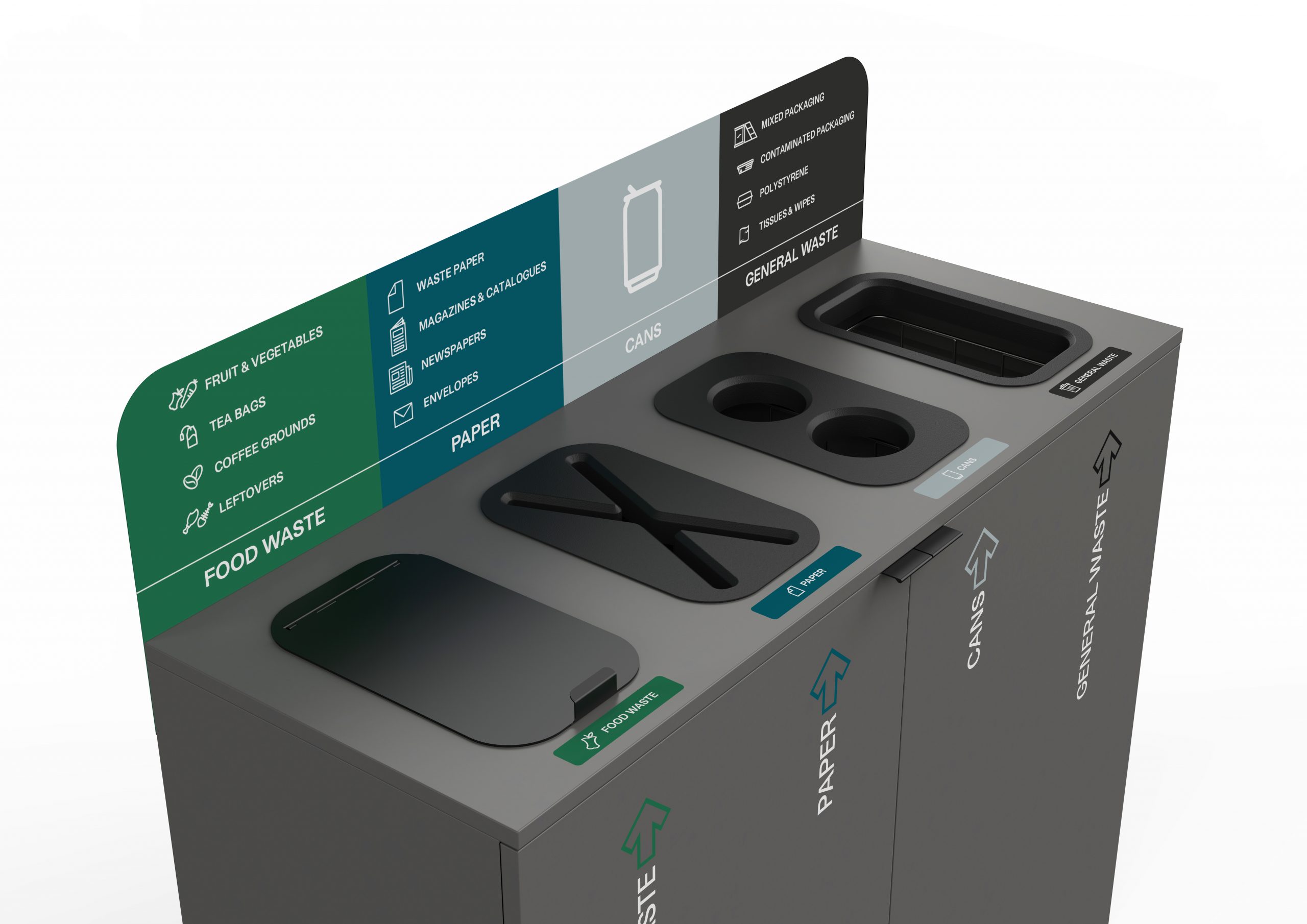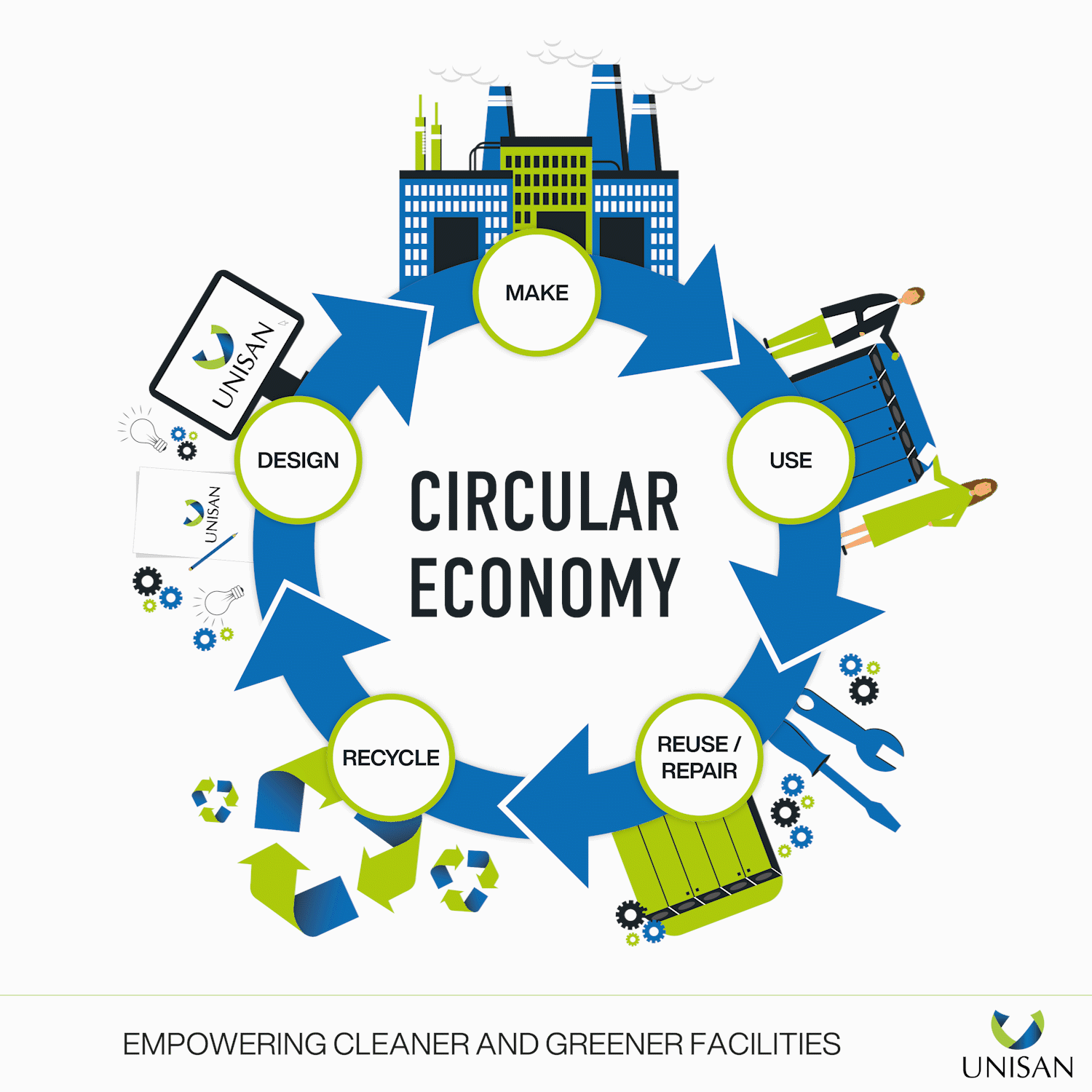Once upon a time, when the narrative on sustainability started to become more mainstream, it seemed like we were aiming for the impossible. But as we move forwards with newfound and innovative recycling strategies, and increasingly advanced technological support, it seems that there might be hope after all!
In this blog we discover what is driving the circular economy dream, and what you can do to help to turn this dream into a reality…
Linear vs Circular models- what do they mean?
The linear model, in which the global economy is largely based upon, is highly unsustainable. That is, taking resources from the planet, using them to manufacture highly complex products and once they reach the end of their shelf life, disposing of them. When you consider the number of resources that we use as individuals and businesses, this model of consumption and disposal simply isn’t a long term solution and can be seen as a major contributor to climate change and increasingly dangerous carbon emissions.
Transitioning to a circular model of consumption would alleviate many of these problems. That means reducing the resource burden we place on the planet, the waste that we create, and the carbon that we emit. This relies on the growth of product responsibility, individual and corporate accountability, and a continuous ongoing effort from all of us to recycle more.
Waste legislation
Recycling efforts have vastly improved over the last five years. However, with a set target to recycle 50% of waste by 2020, we’re still vastly under par with our efforts. The Department for Environment, Food and Rural Affairs (DEFRA) has recently set a further waste recycling target of 65% by 2035 so we’ve still a long way to go if we’re to break through these figures.
That said, with new workplace regulations in place that details a business’s duty of care to dispose of waste accurately, there’s every hope that commercial recycling schemes will soon become an inherent process.
While many people try and predict future sustainability outcomes based on historical patterns, it seems that most effective way of working towards a circular economy lies in awareness and education. Commercial waste accounts for around 85% of all waste so it’s clear that this is an area that needs addressing.
What can you do to support a circular economy?
At Unisan, we’re all about facing objections with action, and the only way to instil positive change is by actually doing it! Taking simple, but highly important steps in your business recycling journey can have tremendous effects on those around you, and the world as a whole. Here are some of the ways you can help to make the circular economy a reality:
Educate your workforce
Recycling isn’t without its complications! The UK councils run at least 39 different waste collections schemes! If we’re to make a circular economy a real-life prospect, understanding what can and can’t be recycled is an essential first step. In fact, one of the key reasons that we fail to reach recycling targets is down to a simple lack of awareness.
The way to ensure that employees understand a recycling system is to engage them with innovative methods of recycling that gets them on board. Whether you run an awareness program or implement team meetings about your strategy, always keep employees firmly in the loop as you’ll ultimately attain much higher recycling rates.
Create clear signage to encourage the right disposal. Clarify your overall aims with your recycling scheme and help them understand how they’re a significant part of achieving great results. It can be overwhelming to make practical changes in the workplace, so do it in small, steady steps to maintain interest and keep things simple.
Implement an effective recycling scheme
Once you’ve made your employees aware, it’s time to implement a recycling scheme. An effective recycling station makes all the difference and they’re designed to suit your personal business requirements.
However, the overall aim is to make sure you have enough of the right recycling bins! In other words, address your businesses’ most commonly disposed waste and select waste chutes as required.
You also need plenty of clear and inspirational signage to make it perfectly clear what goes where. That way you’re making it super convenient for users and reducing the risk of contamination.
Specialist recycling
One of the murky areas of recycling lies in the less obvious items such as coffee cups! While many businesses have a firm grip on plastics and paper recycling, the additional items can end up in general waste thus further compounding the ‘pipe dream’ school of thought!
Coffee cup recycling is an important one, particularly as the vast majority of businesses consume a lot of coffee – 98 million cups a day across the UK according to the British Coffee Association! Many people don’t realise that you can recycle coffee cups and tend to throw them in general waste.
Make a huge difference to your recycling rates by incorporating a coffee cup recycling station that makes the entire process simple. You can customise them to suit your brand and eye-catching signage ensures that it’s a convenient, fool proof process for users.
Can we ever achieve a circular economy?
Obviously, we can’t give a simple yes or no answer, but what we can promise is that intelligently designed recycling systems, combined with the necessary education are key to the efforts to turn a circular economy initiative a reality.
Recycling is simple, but the only way we’ll make tangible steps forward is if we’re all seeking to achieve the same end-goal. If every business makes a conscious effort to step up their recycling efforts, then we have a very real chance of moving towards a circular economy.
Who are Unisan?
Unisan’s key mission is to empower and support workspace recycling, in any environment. We are continually assisting organisations in achieving their sustainability goals and helping businesses demonstrate their commitment to both the environment and their workforce.
Have we convinced you to introduce recycling solutions to increase recycling rates, engage staff and meet the sustainability goals of your business in your workspace? Hope so! Please reach out to a member of the Unisan team to learn more and we’ll be happy to help.
"*" indicates required fields



